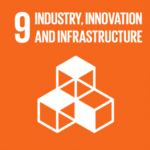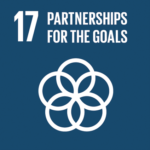“A Billion Ton Bioeconomy Vision” in the United States – Finland looking to partner

Blog - Published 12.10.2020
Traditional expertise in the forest industry along with wood-based product innovations over the last few years in Finland, such as textile fibers and biofuels or the use of wood components in the drug and food industries and composites, have generated global interest.
Global demand for recyclable and bio-based products will continue to grow. Therefore, it is desirable to increase international cooperation in bioeconomy, both in research and between businesses.
The U.S. bioeconomy initiative aiming for strong growth in the bioeconomy sector
The U.S. administration has announced that the United States will withdraw from the Paris climate accord; however, the transition to a green and sustainable economy continues, led in particular by states, cities and businesses. The U.S. Federal Administration is still among the leading research and development funders in the world, taking clean energy as an example.
Over the last few years, there have been various programs and regulatory reforms to develop the American bioeconomy, both by the Federal Administration and by individual states. The United States aims for a so-called “Billion Ton Bioeconomy Vision”, i.e. an annual billion ton biomass output by 2030.
Since new uses will also be needed for biomass with its growing capacity, the purpose of the Federal Bioeconomy Initiative of 2018 is to remove possible obstacles to the expansion of the bioeconomy sector. The work undertaken includes the advancement of interdisciplinary research and acceleration of deployment of innovative and sustainable bio-based technology. According to the initiative, the U.S. goal is to maximize sustainable use of domestic biomass in biofuels, bio-based products and bioenergy.
The United States bioeconomy sector is still dominated by bioenergy and biofuels, but there is huge potential for further growth in the field. The bio-based product industry already employs over four million Americans. Timber construction and opportunities for the use of wood are increasing rapidly, and forward-leaning states, such as Oregon and Washington, have already made proactive changes to their building codes in view of the International Building Code which is to enter into force next year, allowing the construction of tall wooden buildings.
Interest in Finland’s expertise
One important dimension of the United States Bioeconomy Initiative is its goal to enable the establishment of effective partnerships to facilitate growth in the country’s bioeconomy sector.
The Finns have expertise in the field of bio-based solutions which is of interest to the United States: product and technology development, innovations, circular economy solutions and wood construction.
Finland’s story and expertise as the developers of modern and sustainable forest bioeconomy are of particular interest in the heavily-forested states of the United States. Similarly to Finland, these have also experienced a structural change in the paper industry. Collaboration has already been launched with the states of Maine and Michigan, and cooperation agreements have been signed with both in the form of a so-called Memorandum of Understanding. The aim is to achieve a long-term partnership combining research and commercial collaboration, sharing of best practices at policy level and common goals in climate measures and transition to a green economy.
Maine and Michigan as partners with Finland
In 2018 the Maine Woods Consortium, via a U.S. federal-funded project, ordered a report from Indufor in Finland detailing the possibilities of a forest bioeconomy in Maine and more widely, in the United States, as well as requirements for its growth. As a result of the report, Maine set a target to increase the state’s bioeconomy from the current 8.5 billion dollar annual income to 12 billion by 2025. Maine and Finland signed a Memorandum of Understanding in October 2019 in sustainable forest bioeconomy.
Led by Governor of Maine Janet Mills, the trade and study visit to Finland planned for June 2020 had to be postponed due to the coronavirus crisis, but a series of virtual webinars was held in August. The aim is to create relationships between research and commercial operators. At the policy level, Finland and Maine share a commitment to climate measures and the advancement of sustainable green economy, and have collaborated on several forums to highlight these themes.
In March 2020, when the Finnish Minister of Economic Affairs Mika Lintilä and a Team Finland delegation visited the state of Michigan, Minister Lintilä and Governor Gretchen Whitmer of Michigan signed an Memorandum of Understanding in the field of clean technology, also including cooperation in the development of forest bioeconomy. Finland and Michigan, which boasts a large American Finnish community in the United States, have well established ties, which will be further strengthened by the new partnership. Collaboration between Michigan and Finland in green economy will be advanced through several sector-specific working groups with representatives from the public and private sectors.
Nordic cooperation would strengthen export opportunities
Through these new state partnerships, Finland is offering its expertise and looking to learn from the United States which develops its own bioeconomy, for example through public and private sector partnerships.
The Nordic countries traditionally have a strong profile in the United States with a reputation as a reliable partner in the advancement of an environmentally and socially sustainable society, and as strong innovators. The Nordic countries already engage in close collaboration in the United States in the field of climate diplomacy, and there is demand for Nordic examples of successfully combining financial growth and climate measures. In the field of green economy, there is also an opening for more Nordic collaboration in the future with the U.S.


Agenda2030
Collaboration in forest bioeconomy between Finland and the United States contributes to a wide range of sustainable development goals, such as Goal 9: Build sustainable infrastructure and promote sustainable industry and innovation, as well as Goal 17: To support stronger implementation of sustainable development and global partnership.
Photo: Hardebeck Media


